
This Sunday Hollywood spotlights itself with the Academy Awards, tinsel town’s annual gathering of stars, artists and their hangers-on. The 2016-2017 awards have already made headlines for unprecedented racial diversity, though LGBTQ folk remain, once again, underrepresented, particularly in front of the camera. Still, we have to say the Oscars have had more than a few fabulously queer moments over the years, and with luck, this year’s ceremony will prove no exception.
Just how gay do the Oscars get?
Have a look back at ten outstanding moments trailblazing down the Hollywood red carpet, and into Academy Awards history.
Your dose of fabulosi-TEA
Subscribe to our newsletter for your front-row seat to all things entertainment with a sprinkle of everything else queer.
1. Dustin Lance Black‘s Rainbow Speech
Screenwriter and former Mormon Dustin Lance Black took home the statue for his terrific work on Milk, the seminal biopic of gay rights leader Harvey Milk. The win came at a sensitive moment in 2009, just after the passage of California Prop. 8 and at the height of the marriage equality struggle. A teary-eyed Black made an impassioned plea to queer youth to continue the fight, and affirmed that, despite the actions of families, churches or the government, queer folk are loved. Black has since gone on to become something of a marriage equality icon, especially after announcing his engagement to to Olympic diver Tom Daley. His speech is just as relevant today, as equality is threatened all the more.
2. Hunting Oscar
Sam Smith once claimed to be the first out gay person to win an Oscar. They’re wasn’t, even by a long shot. What Smith might have referred to is the dearth of out-gay actors to take home Oscar statuettes. To date, no out-gay man has won an acting Oscar, and only one out-lesbian has nabbed the gold.
Linda Hunt won Best Supporting Actress in 1984 for playing a man in The Year of Living Dangerously. The diminutive dynamo had made only two films prior to her win, making the achievement all the more impressive. Hunt may not have made reference to her sexuality or to the LGBT community in her speech. Nevertheless, to date she remains the only out gay actor to score the statue, making her win a landmark moment in Oscar—and queer—history.
3. Liza’s Big Gay Oscar Number
Ok, so it’s not exactly an Earth-shattering moment of political statement or progress, but the greatest opening ever to the Academy Awards deserves mention here. Queer icon Liza Minnelli, herself the child of gay icon Judy Garland and bisexual director Vicente Minnelli, belted out this ode to Oscar penned by queer composer-lyricist team John Kander and Fred Ebb. Kander and Ebb loaded the song with entendre, as Liza strutted about, singing about how she wanted to grope a naked Oscar, and hold him tight, all before taking him home. Accompanied by a kick line of tuxedo-clad men, a pre-rehab, pre-hip replacement, pre-encephalitis Liza, who’d just taken home a Best Actress Award the year before, stopped the show before it even began.
4. Our Lady Madonna
And speaking of gay icons turning in great performances, pop goddess and occasional bisexual Madonna gave her first Academy Awards performance back in 1991. Coming off her work in the hit film Dick Tracy, a visibly-nervous Madonna performed “Sooner or Later,” the eventual winner for Best Original Song that year, by gay composer Stephen Sondheim. Introduced by host Billy Crystal as the “NC-17” portion of the show, Madonna channeled old Hollywood glamour and gave a full-throated performance that became known as one of the show’s highlights.
5. Cher‘s Silent Protest
The Academy has a reputation for a sort of conservative attitude, both in nominees and winners, and in the kind of telecast to accompany them. No wonder it’s often so damn boring.
In 1986, prior to the show, the Academy sent out requests to all attendees to go for more conservative dress. Leave it to queer icon Cher to buck the trend. The future Oscar-winner showed up for the ceremony in an outrageous dress by queer designer Bob Mackie. Featuring a bikini top, skin-tight pants and an enormous feather headdress, Cher joked that she’d gone for the look of a “serious actress.” It remains one of the most talked about Oscar fashions in history, and the kind of drag-o-riffic protest that only a drag queen—or Cher—could get away with.
6. Howard Ashman’s Longtime Companion
Lyricist Howard Ashman scored his first Oscar for penning the lyrics to “Under the Sea” from Disney’s The Little Mermaid in 1990. The night of his win, he confessed to longtime writing partner Alan Menkin that he had contracted HIV. That didn’t deter Ashman, who continued to work through his illness, collaborating with Menkin to write the songs to Disney’s next animated blockbuster Beauty and the Beast. Menkin & Ashman managed to take home the gold again, this time, for the title tune. Unfortunately, Ashman himself died just prior to the film’s release. His longtime boyfriend Bill Lauch accepted the award on his behalf, becoming the first ever gay partner to accept for his deceased love. Lauch shared warm memories of the home he shared with Ashman, and noted that Ashman had become the first Oscar winner to die of AIDS. The moment marked an important turning point for the Academy, and indeed, for pop culture as a whole, raising awareness of the scourge, and of the plight of same-sex couples everywhere.
7. Ellen Busts Down The Closet Door Again
Critics declared Ellen DeGeneres’ career DOA by the late 1990s. After becoming the first major TV star to come out of the closet—and embodying the first main character to come out in a sitcom—Hollywood treated DeGeneres as a sort of pariah. The comedienne found her show cancelled, and work in short supply.
By 2007 though, Ellen had made a roaring comeback, both as an actress in the film Finding Nemo, and as one of the most popular talk show hosts on television. That year, Ellen made history again, becoming the first out-gay person to host the Oscars. DeGeneres earned strong reviews for her work as host, returning to emcee the show again in 2014. Her irreverent humor made her one of the most celebrated hosts in the history of the ceremony.
8. Oscar Gets Milked
Long before Milk helped make Harvey Milk into a household name, the gay rights champion got the cinematic treatment with an Oscar-winning documentary. The Times of Harvey Milk presented Milk’s rise as a civil rights leader though archive footage and the testimonial of friends and colleagues. The film also immortalized Milk’s humor, intelligence and can-do spirit, bringing his message of acceptance and fearlessness to a nation in the midst of an ultra-conservative furor. Director Rob Epstein took home the Academy Award for Best Documentary in 1984 for the film, which offered a glimmer of hope to the gay community in the shadow of Reagan’s homophobic presidency. Epstein even thanked his life partner in his speech, which, in 1984, was a very big deal.
9. Hooray for Boobies
Host Seth MacFarlane may have earned mixed reviews for his 2013 Oscar stint, in particular for his controversial opening musical number, “Saw Your Boobs.” The song paid homage to all the actresses who have gone topless in movies, much to MacFarlane’s delight, complete with cutaways to said actresses embarrassed in the crowd (MacFarlane later claimed he’d warned them all in advance). Though MacFarlane sang with vigor, he didn’t do so alone, inviting the Gay Men’s Chorus of Los Angeles on stage to sing back up. The juxtaposition made for some awkward laughs…though leave it to the gays to provide some choral levity…in a song about boobs…at the Oscars. Think about it.
10. Oscar’s Trans-Formation
By the late 1990s, queer characters had finally begun to make regular appearances in films, mostly in the form of suffering or comical gay men and women. 2000 marked another watershed moment, as the indie film Boys Don’t Cry became a modest hit and scored two Oscar nominations. The true story of transgendered teen Brandon Teena as directed by lesbian Kimberly Pierce, Boys Don’t Cry finally shed light on the sensitive plight of trans men and women with visceral power. When actress Hilary Swank—herself still a relative unknown—took home the Oscar for Best Actress, the zeitgeist took another step forward in terms of social consciousness. Swank acknowledged as much in her acceptance speech, and thanked Brandon Teena for his courage, even referring to him as him.



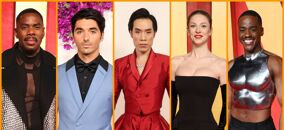
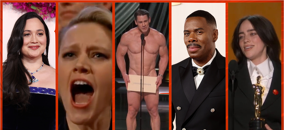

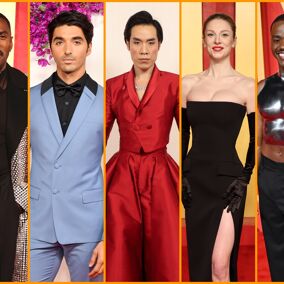
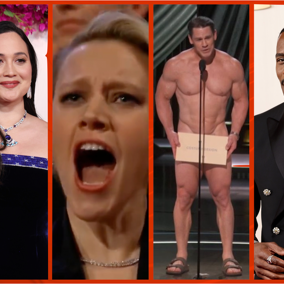
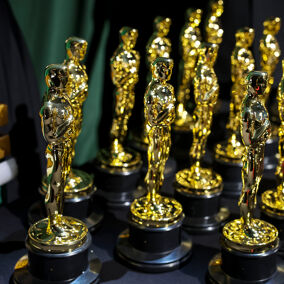
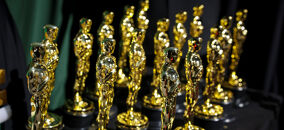
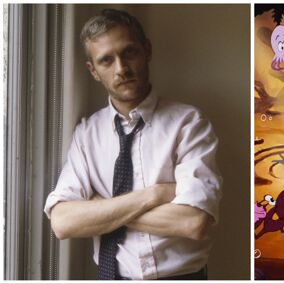
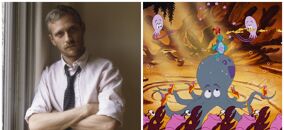
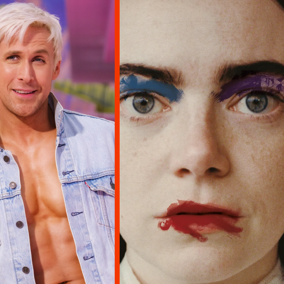
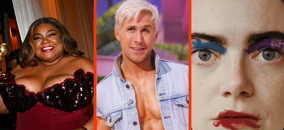
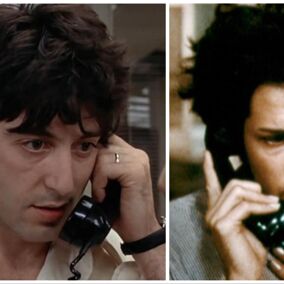
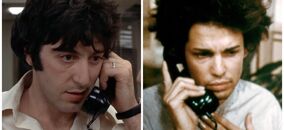
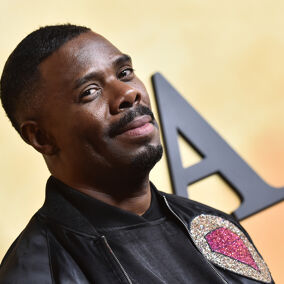
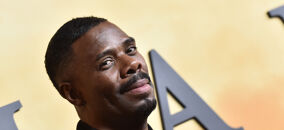
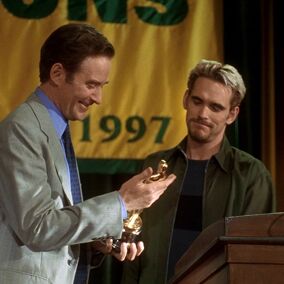
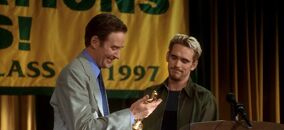
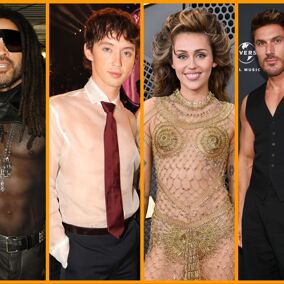























Caine
Off the top of my head the gayest thing I ever saw on the Oscars was that number with Rob Lowe and – – – was it Snow White? Or – let’s talk about the year Debbie Allen was the choreographer…
David Reddish
Though produced by gay producer Alan Carr, that was a train wreck! It wasn’t gay or even campy fun…it was horrid!
ChrisK
Ellen hosting was the last time I watched the Oscars.
He BGB
I have never laughed harder than on Family Guy when they did the sandwich coming through the glory hole joke. But sometimes I get the impression Seth and or his staff don’t have any respect for women unless they are great looking. Lots of jokes about them being ugly like a foot, etc. Mean (but funny, I admit, but just saying he has a prob with women who aren’t 10s like our president
Herman75
Seth is talented, smart and an ally, but Saw Your Boobs made me cringe.
bluebirdwales
John Gielgud Best Supporting Actor 1981 for Arthur. Gielgud was arrested for homosexual acts in 1950s and living openly with his male partner when he won his Oscar.
David Reddish
Not openly. Gielgud’s sexuality didn’t become public until his death. Ian McKellen even released a statement.
Brody
The Oscars have a “conservative attitude”?
I’ll bet this is news to the Oscars.
And the “cutaways” referenced during Seth McFarlane’s “We Saw Your Boobs” number were all pre-recorded by actresses who were in on it—none were genuine reactions. But, nice try at portraying all women as victims of sexism.
Kangol
Another gay moment came last year, when *Moonlight* won the Oscar, becoming the first primarily by and about a black gay/bi person/POC to earn the best film award. In addition, when *Precious* (not a fan of the film) received its Oscars in 2010, the screenwriter, Geoffrey Fletcher, became the first out black gay person to win the Academy Award for Best Writing-Adapted Screenplay.
Lacuevaman
“10 gayest moments” give me a break
StupidBoy
Although a fan of Ellen’s stand up and her courageousness, she is sort of a fat-shamer, too. She has a second studio where her producers usher the fat people in line to watch her show because the “main studio is full.” A lesbian blogger even wrote about it and laughed it off. If you look at the audience carefully, none of them are “fat,” even though Ellen is the love of fat housewives all over the country. I can’t support her for that. Even if it’s her producers doing it, she has creative control over her own show.
I weighed 426 pounds before I had bypass surgery 14 years ago. I know the shame of being obese and not being able to do anything about it. Of not being able to fit into theater seats.
I would think that lesbians would call her out on it more, but all I’ve heard is crickets.
zedus headus
Everybody can do something about being obese. It is called controlling the caloric intake and exercise, you StupidBoy.